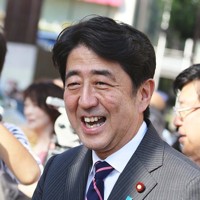On Dec. 16, the Japanese public delivered Prime Minister Yoshihiko Noda a predictable, but nonetheless crushing defeat in parliamentary elections. The magnitude of the public’s rejection of the ruling Democratic Party of Japan (DPJ) trumped poll predictions and resulted in the Liberal Democratic Party (LDP), led by Shinzo Abe, wresting total control of the Lower House. The LDP along with its ally, the Komeito Party, won 325 seats in the election, giving it a “supermajority” of two-thirds of the total representatives. This will effectively allow Abe to override any vetoes from the Upper House of the Japanese Diet, which is still led by the DPJ.
The LDP has been given a strong mandate largely as a result of Japan’s economic malaise during the DPJ’s three-year reign. However, the rebirth of the LDP and Abe, who served as prime minister in 2006-2007, has significant foreign policy implications, in particular for Japan’s role in Asia. Abe has been branded by the foreign press as a “nationalist” and “hard-liner” due to his conservative policy stances on North Korea and Japan’s territorial disputes with China, South Korea and Russia. However, while Abe’s position on these disputes may be less ambiguous than Noda’s, he will face the same vexing challenges as his DPJ predecessor in addressing them. As a result, he is likely to adopt a tempered and strategic approach to relations with the region.
Amid recent tensions with Tokyo over the Japanese-administered Senkaku Islands, claimed by China as the Diaoyu, Beijing is concerned that the LDP victory could have an adverse effect on bilateral relations. South Korea, which is headed to the polls this week to choose a new president, is also carefully watching developments in Tokyo with an eye to how this may affect its fractured bilateral relationship with Japan. In particular, both Beijing and Seoul are concerned about Abe’s defiance of their protests regarding visits to the Yasukuni Shrine in Tokyo, which honors Japan’s World War II war dead, including some war criminals. Abe visited the shrine as recently as October, as leader of the opposition. The symbolism of the Yasukuni visits, however, will be magnified once Abe becomes prime minister, and he will need to weigh more carefully the risks involved in making future trips.

